 If I were a a sci-fi writer or a Norwellian social critic I would call the 21st century the “Rise of the Techie” and, indeed, it is. But I don’t think the societal structures currently in place have any idea what that will mean to the “normal” day to day life of Jane and John Doe. From my point of view in advertising and now ad-tech, these trends are much easier to see coming than for an average “techie”. “Techies”, whatever that term ACTUALLY means, are seen as the most unaware people in the world, focusing on “apps”, and “product cycles” and “agile configurations” . Nomenclature common in today’s trendy world of millennials starting up a brand new “hi-tech” start-up every day. The cultural language of our time is full of terms like “social network”, “gaming”, “netflix binging”. We hear it every day, but somehow its still something ethereal, mystical and beyond the realm of “normal” people.
If I were a a sci-fi writer or a Norwellian social critic I would call the 21st century the “Rise of the Techie” and, indeed, it is. But I don’t think the societal structures currently in place have any idea what that will mean to the “normal” day to day life of Jane and John Doe. From my point of view in advertising and now ad-tech, these trends are much easier to see coming than for an average “techie”. “Techies”, whatever that term ACTUALLY means, are seen as the most unaware people in the world, focusing on “apps”, and “product cycles” and “agile configurations” . Nomenclature common in today’s trendy world of millennials starting up a brand new “hi-tech” start-up every day. The cultural language of our time is full of terms like “social network”, “gaming”, “netflix binging”. We hear it every day, but somehow its still something ethereal, mystical and beyond the realm of “normal” people.
“It’s a digitial world and I am just a digitial girl…!” -revised Cyndi Lauper
As an added consequence anyone over 35 is immediately ejected from the “in-crowd”, since unless they’re the ones financing those brand new “hi-tech” startups.. they just don’t “get it”. Which is ridiculous but accepted in the “Ender’s Game” culture we live in. But there are  exceptions. In the recent movie “The Intern”, Robert Dinero does his usual credible job of portraying someone we all want to be (and, of course, aren’t) guiding the trendy, beautiful “founder” of an ecomm company, through the perils of both corporate and “real” life. My personal feelings aside, the reason I mention this in this article is, although she was the CEO of a “digital” company, should could do everything from customer service to showing warehouse workers how to fold clothes for shipping…but there was one thing she DIDN’T do…code! That was left to the nerdy oddballs straight out of the Big Bang Theory. Grown up men who dress and act like boys, finally learning from a paternal DeNiro, the dignity and manly grace behind wearing a tie or carrying a handkerchief. Well, whatever… I may never understand why all these stereotypes are so wildly popular but that aside, there is some reality behind all dreams.
exceptions. In the recent movie “The Intern”, Robert Dinero does his usual credible job of portraying someone we all want to be (and, of course, aren’t) guiding the trendy, beautiful “founder” of an ecomm company, through the perils of both corporate and “real” life. My personal feelings aside, the reason I mention this in this article is, although she was the CEO of a “digital” company, should could do everything from customer service to showing warehouse workers how to fold clothes for shipping…but there was one thing she DIDN’T do…code! That was left to the nerdy oddballs straight out of the Big Bang Theory. Grown up men who dress and act like boys, finally learning from a paternal DeNiro, the dignity and manly grace behind wearing a tie or carrying a handkerchief. Well, whatever… I may never understand why all these stereotypes are so wildly popular but that aside, there is some reality behind all dreams.
In my previous post The Great “Talent” Show I expressed my dismay at how techies, developers, in particular, are somehow always the forgotten man in technology’s Broadway  show. Sort of like putting a lot of hype into Wolfgang Puck’s brand new 4 star restaurant without hiring anyone to cook the food. American culture seems to be one of downplaying whats truly importan for whats shiny, bright and new. A Peter Pan culture that likes when nice things happen but don’t always want to be responsible for making them happen. Its like having a century of fossil fuel based economic growth, without anyone ever once mentioning, “What happens when the fuel runs out?”. We’re currently in the business of creating a global technology economy, an economy based on code, trillions of lines of code. But who’s going to write all this code?
show. Sort of like putting a lot of hype into Wolfgang Puck’s brand new 4 star restaurant without hiring anyone to cook the food. American culture seems to be one of downplaying whats truly importan for whats shiny, bright and new. A Peter Pan culture that likes when nice things happen but don’t always want to be responsible for making them happen. Its like having a century of fossil fuel based economic growth, without anyone ever once mentioning, “What happens when the fuel runs out?”. We’re currently in the business of creating a global technology economy, an economy based on code, trillions of lines of code. But who’s going to write all this code?
What fossil fuels were in the 20th century, code will be in the 21st century…the fuel that runs the economies of every country in the world, 1st, 2nd or 3rd world, it will not make any difference. The demand increases every day, will the supply keep up? In the end, all those bits and bytes are put there by people. Perhaps some day, there will be programs to write programs. Who knows? Time will tell. But the good news is, as if by divine decree, more and more tools to create all this digital nirvhana are being created every day. And with the power of the internet anybody who has access to the internet can use them.
Just the last 5 years alone, I personally have seen, not just technology leaps like faster chips, or cooler iphones but “software tools” that make all that hardware more useful, more relevant and more valuable. Yes, all the Dockers, NodeJs’s, Githubs and the like are creating a modern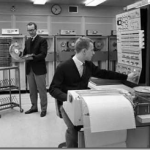 renaissance in software development…a “Golden Age” we are just now embarking on. In the 20th century, it was C, C#, Java, perl and php that were cryptic, mysterious and hidden, but provided the fuel that created the economic miracles of their day, Apple, Microsoft and the ever amazing Sony Playstation. The difference? Not just semantics or even code. If you look deeply under the hood of the “new” stuff we find ourselves still surrounded by C code and “Bash” shells, just like 1990! But in 1990, to even know what this stuff even meant, much less be able to use it, you could tinker in your garage with parts from Radio Shack, but unless your Jobs and Wozniak, that was “unprofessional”. Generally you had to have a clear and distinct interest, major in “Comp Sci” in college just to get behind the screen of a “mainframe” or “mini-computer”. Then you had to get that first job in “IT” as an analyst, technical support engineer or even, yes even then, a programmer. The typical interview question then, “You know C? When can you start?”
renaissance in software development…a “Golden Age” we are just now embarking on. In the 20th century, it was C, C#, Java, perl and php that were cryptic, mysterious and hidden, but provided the fuel that created the economic miracles of their day, Apple, Microsoft and the ever amazing Sony Playstation. The difference? Not just semantics or even code. If you look deeply under the hood of the “new” stuff we find ourselves still surrounded by C code and “Bash” shells, just like 1990! But in 1990, to even know what this stuff even meant, much less be able to use it, you could tinker in your garage with parts from Radio Shack, but unless your Jobs and Wozniak, that was “unprofessional”. Generally you had to have a clear and distinct interest, major in “Comp Sci” in college just to get behind the screen of a “mainframe” or “mini-computer”. Then you had to get that first job in “IT” as an analyst, technical support engineer or even, yes even then, a programmer. The typical interview question then, “You know C? When can you start?”
Now any 12 year old can start his school science project on Github, pull in a Node module and  create a mobile app to the keep the scoring average of his favorite NBA players on a day to day basis. I don’t know whether anybody out there is doing or will be doing such a thing but I do know that they CAN do it! Anywhere in the world at any time! And that is where all of our futures lie. In the hands of not just “developers”, “techies” and “propeller heads”, but little johnny and jane who program as naturally as they drink milk and outgrow their clothes…openly, without stigma, ridicule and prejudice. In a world full of consumers SOMEBODY has to be the producers. And I’m betting it won’t just be the Stanford scholars and drop outs in Silicon Valley. I’m betting it will be the kids in Sao Paulo, Nairobi and Manila.
create a mobile app to the keep the scoring average of his favorite NBA players on a day to day basis. I don’t know whether anybody out there is doing or will be doing such a thing but I do know that they CAN do it! Anywhere in the world at any time! And that is where all of our futures lie. In the hands of not just “developers”, “techies” and “propeller heads”, but little johnny and jane who program as naturally as they drink milk and outgrow their clothes…openly, without stigma, ridicule and prejudice. In a world full of consumers SOMEBODY has to be the producers. And I’m betting it won’t just be the Stanford scholars and drop outs in Silicon Valley. I’m betting it will be the kids in Sao Paulo, Nairobi and Manila.
Think about it…















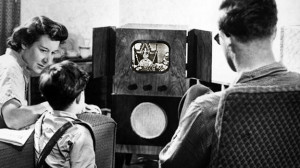
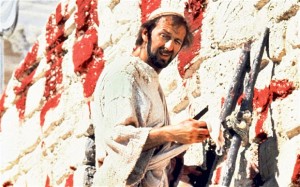

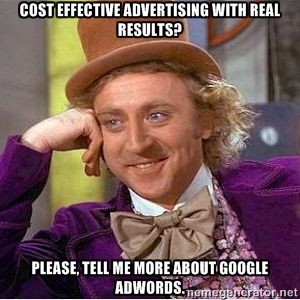











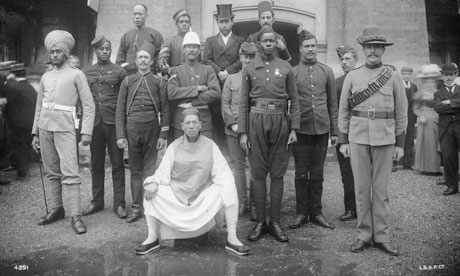
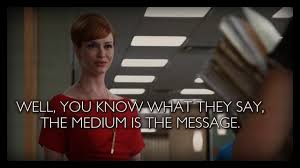 often I have to step back a little and take a look at the big picture. As notably predicted for the last 25 years, not only in my own observations, but countless others, the World Wide Web, better known as the “Internet”, is rapidly becoming the backbone of today’s media…and no, not just social media…all media. But that is not the realization that I’m going to write about. As far as it goes, that is not even a realization as a statement of the obvious. The realization comes from the fact that for the first time the “media” is separating from the “medium” but the messages must still remain in tact.
often I have to step back a little and take a look at the big picture. As notably predicted for the last 25 years, not only in my own observations, but countless others, the World Wide Web, better known as the “Internet”, is rapidly becoming the backbone of today’s media…and no, not just social media…all media. But that is not the realization that I’m going to write about. As far as it goes, that is not even a realization as a statement of the obvious. The realization comes from the fact that for the first time the “media” is separating from the “medium” but the messages must still remain in tact.  transmit information via pigeon, you needed a pigeon. To send telegrams you needed a telegraph. To read a paper you needed a printing press. To listen to radio broadcasts you needed a radio. To watch a movie, you needed a theatre and last but not least to watch television…well you know where I’m headed.
transmit information via pigeon, you needed a pigeon. To send telegrams you needed a telegraph. To read a paper you needed a printing press. To listen to radio broadcasts you needed a radio. To watch a movie, you needed a theatre and last but not least to watch television…well you know where I’m headed.  The possibilities are endless. So are the choices modern web designers/developers have to make. Hence, the continuing rise of the new generation of “User Experience Designers”. The catch phrase for technology professionals in the early 21st century. It is the User Experience Designer that has to figure out, given a single message, how that message will be perceived, viewed, collected and stored not by the medium but by the device attached to the medium, your browser, your tablet, your mobile phone, your toaster…whatever.
The possibilities are endless. So are the choices modern web designers/developers have to make. Hence, the continuing rise of the new generation of “User Experience Designers”. The catch phrase for technology professionals in the early 21st century. It is the User Experience Designer that has to figure out, given a single message, how that message will be perceived, viewed, collected and stored not by the medium but by the device attached to the medium, your browser, your tablet, your mobile phone, your toaster…whatever.  android I want an android text message. If I’m on my laptop do I want a Safari or Chrome or (God forbid) an Internet Explorer message? It may seem trivial but its not. Developing apps used to be a simple matter of knowing a technology that was both reasonably popular and that you had or could acquire some familiarity with. Not any more. We no longer deal just in the technology realm alone but the “culture” of technology. Apps can be, but are no longer expected to be, monolithic. Facebook is Facebook on your laptop, but is it still Facebook on your Iphone? On your Samsung? On your toaster?
android I want an android text message. If I’m on my laptop do I want a Safari or Chrome or (God forbid) an Internet Explorer message? It may seem trivial but its not. Developing apps used to be a simple matter of knowing a technology that was both reasonably popular and that you had or could acquire some familiarity with. Not any more. We no longer deal just in the technology realm alone but the “culture” of technology. Apps can be, but are no longer expected to be, monolithic. Facebook is Facebook on your laptop, but is it still Facebook on your Iphone? On your Samsung? On your toaster? again returning, in no small way, to the “medium is the message”! Given my 1000 word limit. I won’t go into the debate itself in this article. But it will be the source of articles to come.. .stay tuned! (On the device of your choice, of course!)
again returning, in no small way, to the “medium is the message”! Given my 1000 word limit. I won’t go into the debate itself in this article. But it will be the source of articles to come.. .stay tuned! (On the device of your choice, of course!)
 technologies lie hidden behind all the social networks, websites, video ads, etc. they consume, the folks that actually earn a living putting all those things together do. To the developers, programmers, producers and project managers of the world this is neither hype nor magic, its how they feed their families. Developing the skills required to build any of the dazzling applications that come across your browser takes time (sometimes a lot of time), energy, dedication and no small amount of money to learn. So if digital development is your chosen field of endeavor, picking the right technology to “float your boat” in is a major investment!
technologies lie hidden behind all the social networks, websites, video ads, etc. they consume, the folks that actually earn a living putting all those things together do. To the developers, programmers, producers and project managers of the world this is neither hype nor magic, its how they feed their families. Developing the skills required to build any of the dazzling applications that come across your browser takes time (sometimes a lot of time), energy, dedication and no small amount of money to learn. So if digital development is your chosen field of endeavor, picking the right technology to “float your boat” in is a major investment! For example, there is not a soul alive, layman, technologist, or advertising maven that will deny the overwhelming effect the mobile phone has, is and will have on our daily lives. But like the television, or even the radio, how many of us actually know how it works? Once a handy item to avoid pay phones (now nearly extinct) they have become as part of how we live our lives as where we work and what we wear. We use them to locate, placate, associate and communicate…every single day. Yet we still think of the “technology” as the actual device itself and not the all important “innards”. An iphone is an iphone right?
For example, there is not a soul alive, layman, technologist, or advertising maven that will deny the overwhelming effect the mobile phone has, is and will have on our daily lives. But like the television, or even the radio, how many of us actually know how it works? Once a handy item to avoid pay phones (now nearly extinct) they have become as part of how we live our lives as where we work and what we wear. We use them to locate, placate, associate and communicate…every single day. Yet we still think of the “technology” as the actual device itself and not the all important “innards”. An iphone is an iphone right? With that in mind, picking the right kind of software a software professional should know can make all the difference between standing in line for your IPO or standing in line for your bread! With that said, how do software professionals choose which set of skills they need? The ubiquitous answer is the “marketplace”. Yes, we’re back to the world of Adam Smith and the “free hand” taking control of our economic lives ( see the article “We’re off to see the Widget, June, 2009
With that in mind, picking the right kind of software a software professional should know can make all the difference between standing in line for your IPO or standing in line for your bread! With that said, how do software professionals choose which set of skills they need? The ubiquitous answer is the “marketplace”. Yes, we’re back to the world of Adam Smith and the “free hand” taking control of our economic lives ( see the article “We’re off to see the Widget, June, 2009  After all, that’s why we’re online, on the phone, and on the go in the first place. The world is becoming a 24 hour odeon for entertainment, information and just a cool place to be, even when you’re “relaxing” at home. The hardware will be telephones, televisions, computers, refrigerators and coffee pots, but guess what? Its going to be the software that holds it all together across so many different kinds of platforms. But which one? Remember the days of Microsoft vs. Apple, Digital Equipment vs. IBM, the Model T vs. the horse and buggy? So the race is on and everyone loves a good competition. Will it be Android or iOS? HTML 5 or Flash or Javascript? Will it be Xbox or Wii? Who knows!? My guess ALL of the above, at least for a little while.
After all, that’s why we’re online, on the phone, and on the go in the first place. The world is becoming a 24 hour odeon for entertainment, information and just a cool place to be, even when you’re “relaxing” at home. The hardware will be telephones, televisions, computers, refrigerators and coffee pots, but guess what? Its going to be the software that holds it all together across so many different kinds of platforms. But which one? Remember the days of Microsoft vs. Apple, Digital Equipment vs. IBM, the Model T vs. the horse and buggy? So the race is on and everyone loves a good competition. Will it be Android or iOS? HTML 5 or Flash or Javascript? Will it be Xbox or Wii? Who knows!? My guess ALL of the above, at least for a little while. Being Steve Jobs he can bend or even tilt the marketplace, but even he can’t break it. That’s left in the all-powerful hands of the consumer. However, what most consumers are unaware of is that most of the core technologies that run their precious gadgets have been around for decades, a lot longer than the actual devices themselves. Javascript has been with us since the 90s, Objective C, since the 80s, html (including “most” of html 5) has been around since the 70’s! Flash/Actionscript is actually the “baby” in this bunch!
Being Steve Jobs he can bend or even tilt the marketplace, but even he can’t break it. That’s left in the all-powerful hands of the consumer. However, what most consumers are unaware of is that most of the core technologies that run their precious gadgets have been around for decades, a lot longer than the actual devices themselves. Javascript has been with us since the 90s, Objective C, since the 80s, html (including “most” of html 5) has been around since the 70’s! Flash/Actionscript is actually the “baby” in this bunch! In my mind, there’s room enough for everybody! If you don’t know what AJAX is, don’t worry about it. No, its not a powdered cleanser but it will play a significant role in your digital life whether you’re aware of it or not and right now a lot of developers are betting it will be their meal ticket to fame, fortune, and some all new gadgers of their own. We’ll see…we’ll see….
In my mind, there’s room enough for everybody! If you don’t know what AJAX is, don’t worry about it. No, its not a powdered cleanser but it will play a significant role in your digital life whether you’re aware of it or not and right now a lot of developers are betting it will be their meal ticket to fame, fortune, and some all new gadgers of their own. We’ll see…we’ll see….